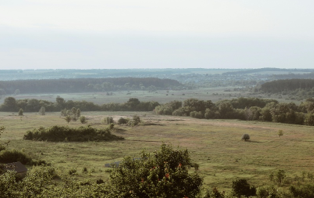In Ghana today, land encroachment has become a pressing issue that threatens the security and investments of homeowners.
Whether in urban centers or rural communities across the country, unauthorized occupation and trespassing on private land are causing serious financial, legal, and emotional distress.
For many Ghanaians, land is more than just property—it is a legacy, a source of livelihood, and a key asset for securing the future. Yet, countless homeowners find themselves entangled in disputes over their own land, facing encroachers who either claim ownership or exploit loopholes in weak regulatory systems.
So, what exactly is land encroachment, and how does it impact homeowners in Ghana? More importantly, what can be done to address this growing concern? Let’s dive into the effects and explore practical solutions that homeowners can adopt.
The effects of land encroachment
- Loss of property value
One of the most immediate and painful effects of land encroachment is the depreciation of property value. When land is encroached upon, it loses its attractiveness to potential buyers and investors. A homeowner who plans to sell or develop their property may find it difficult to do so when part of their land has been taken over by squatters or unauthorized occupants. This is particularly frustrating in prime real estate areas where land is expensive and in high demand.
- Lengthy legal battles and financial drain
Land disputes in Ghana can take years, sometimes decades, to resolve. Many homeowners who fall victim to encroachment are forced into prolonged legal battles, spending huge sums of money on lawyers, court fees, and documentation. In some cases, they may even have to pay fines or compensation to settle disputes, despite being the rightful owners. The financial burden can be overwhelming, especially for individuals who invested their life savings into purchasing or developing land.
- Emotional and psychological distress
Beyond the financial losses, land encroachment takes a toll on homeowners’ mental and emotional well-being. The constant fear of losing one’s property, dealing with hostile encroachers, or living in uncertainty can lead to stress, anxiety, and even depression. Many people experience sleepless nights, worrying about possible legal setbacks or violent confrontations with encroachers who refuse to vacate their land.
- Social conflicts and community disputes
Land encroachment often fuels tension between individuals, families, and even communities. It is not uncommon to hear stories of physical altercations, property damage, and sometimes fatal clashes arising from land disputes. In some cases, traditional authorities, politicians, and land guards become involved, further complicating the issue and leading to prolonged conflicts.
The way forward – what homeowners can do
Despite these challenges, homeowners are not entirely powerless. There are strategic steps that can be taken to protect one’s property and minimize the risks of land encroachment.
- Secure proper documentation
One of the biggest mistakes people make when acquiring land is failing to secure the necessary legal documents. In Ghana, it is crucial to conduct due diligence before purchasing land. This includes verifying land titles at the Lands Commission, confirming ownership with traditional authorities (in the case of stool lands), and ensuring that land is free from litigation. Obtaining a land title certificate provides stronger legal backing than just having an indenture.
- Conduct regular property surveys
Homeowners should periodically engage licensed surveyors to mark and confirm the boundaries of their land. A proper survey helps to prevent encroachment by establishing clear demarcations. It also serves as crucial evidence in case of disputes.
- Fence and secure the property
A secured property is less likely to be encroached upon. Homeowners should invest in fencing, signposts, and, where necessary, security personnel to guard their land. Even if you are not ready to develop the land, fencing sends a clear message that the property is owned and protected.
- Monitor and report encroachments early
Land encroachment does not happen overnight. It usually starts small—a makeshift structure, illegal farming, or someone claiming a portion of the land. Homeowners should regularly visit their property, especially if it is undeveloped, to monitor any unauthorized activity. Any suspicious occupation should be reported immediately to the police, the Lands Commission, and relevant local authorities.
- Engage legal and community support
Legal representation is often necessary to handle encroachment issues. Homeowners should work with lawyers who specialize in land disputes to navigate legal complexities. Additionally, collaborating with community leaders and neighborhood watch groups can provide extra support in safeguarding property.
The role of government and authorities
While homeowners must take proactive steps, the government and regulatory agencies also have a crucial role to play in addressing land encroachment in Ghana.
- Strengthening land registration and documentation systems
Many land disputes arise due to poor record-keeping and overlapping claims of ownership. The government must improve land registration processes by digitizing records and ensuring transparency in land transactions. Clearer documentation will minimize fraudulent land sales and prevent encroachment.
- Enforcing strict legal consequences
Encroachers often take advantage of the slow and ineffective legal system. The government must introduce and enforce stricter penalties for land encroachment, including heavy fines, eviction policies, and legal action against offenders.
- Public awareness and education
Many Ghanaians are unaware of their land rights and legal protections. Public education campaigns can help inform citizens about the importance of securing land documentation and knowing legal channels for resolving disputes.
Conclusion
Land encroachment is a growing concern in Ghana, threatening the investments and peace of homeowners. The consequences—ranging from financial losses and legal battles to emotional distress—can be devastating. However, by securing proper documentation, conducting regular land surveys, installing protective measures, and staying vigilant, homeowners can significantly reduce the risk of encroachment.
At the same time, government intervention through stronger land registration systems, stricter laws, and public education is essential to curb this menace. Protecting land is not just about securing property; it is about safeguarding livelihoods, ensuring stability, and preserving legacies for future generations.

>>>Housing in Ghana magazine is a publication under the Housing in Ghana Foundation, an organization that is committed to promoting and facilitating access to quality housing solutions across Ghana. The bi-annual magazine publication serves as a comprehensive guide for individuals, families investors as well as other key industry players seeking information on real estate trends and news, property listings and investment opportunities within the country. Contact: [email protected], 0555444665 | 0599663344










